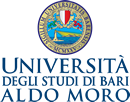Eine genderkritische Analyse von Lehrmaterial für Integrationskurse und mögliche Zugänge zu einem gendergerechten DaZ-Unterricht
Abstract
This article explores the prevailing attributions and categorizations that shape the concept of ‘gender’ in textbooks for German as a Second Language (DaZ) in order to put forward recommendations for implementing gender-sensitive teaching within integration courses. The article’s starting point is the curriculum for integration courses provided by the Federal Ministry for Migration and Refugees, which aims to enable learners to participate in the discourses of German-speaking societies. The curriculum’s stated objectives, however, cannot be effectively achieved without incorporating gender-sensitive perspectives into language teaching and DaZ textbooks (Freese, Völkel 2022). Through an analysis of selected teaching materials, this essay examines the category of ‘gender’ in relation to hierarchical and discriminatory linguistic attributions and structures and their effects on identity formation, as well as the positioning of participants within German-language discourse and the associated power dynamics. Following this analysis, the article addresses how and at what points gender-sensitive language forms and a shared reflection about them can be introduced in the classroom. Therefore, the results of this study should not be used to pressure integration course participants into using gender-sensitive language, but rather aim to enable learners to participate in society in a self-determined way.
Parole chiave
Gender-sensitive teaching; German as a second language; integration; language and gender; participation
Full Text
PDFDOI: https://doi.org/10.15162/1970-1861/2101
Refback
- Non ci sono refbacks, per ora.

